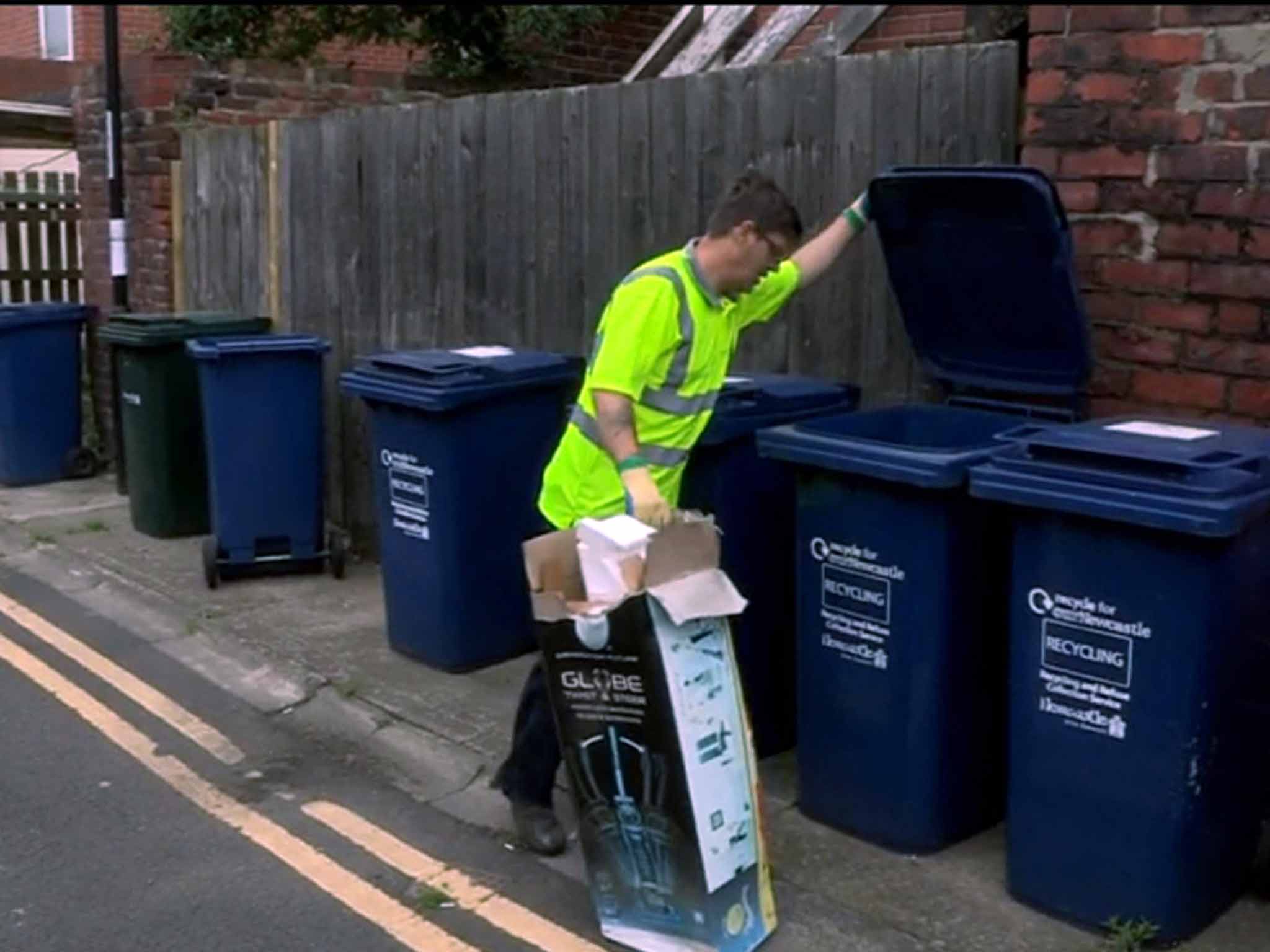Wastemen, BBC2 - TV review: When it comes to fly-tipping, don't mess with the Tyneside Terminators
These waste-management workers go to heroic lengths to save us from our own slobbishness

Your support helps us to tell the story
From reproductive rights to climate change to Big Tech, The Independent is on the ground when the story is developing. Whether it's investigating the financials of Elon Musk's pro-Trump PAC or producing our latest documentary, 'The A Word', which shines a light on the American women fighting for reproductive rights, we know how important it is to parse out the facts from the messaging.
At such a critical moment in US history, we need reporters on the ground. Your donation allows us to keep sending journalists to speak to both sides of the story.
The Independent is trusted by Americans across the entire political spectrum. And unlike many other quality news outlets, we choose not to lock Americans out of our reporting and analysis with paywalls. We believe quality journalism should be available to everyone, paid for by those who can afford it.
Your support makes all the difference.It was the final episode of documentary series Wastemen, the Geordie binman's answer to Made in Chelsea, and at the Byker waste-processing plant the lads were raking through a mountain of used tissues, broken bottles and chow mein noodles, in search of some special treasure. "There's some money been lost in the waste from one of the Newcastle City Council chambers," said site manager Bob. That's a metaphor, that is, for the huge, overlooked value of the things that most of us throw away.
The lengths to which these waste-management workers will go to save us from our own slobbishness are occasionally downright heroic. At Byker they transform a 100 tonnes of uneaten food into compost on a daily basis and package up everything else for shipment to Sweden, where it's used to fuel specially adapted power plants. Since there are no equivalent facilities in the UK, we have to pay the Swedish for the privilege of powering their homes, but it's still more cost-effective than the landfill.
There's less the wastemen can do about all the rubbish that never quite makes it into the bins in the first place. In some neighbourhoods, it's not unusual to find household rubbish and rotting meat strewn across the floor, attracting rats, flies and other nasties. Worse, as neighbourhood warden Joe pointed out, fly-tipped rubbish has a strange way of multiplying: "If that's dumped there, other people will just say, 'I'll take ours up there and dump it there as well'."
Government cuts mean street cleaner Micky is losing his job after 20 years of keeping public spaces spick and span. That only leaves conscientious local residents such as Ellie to pick up litter. "I'm not sure why we've lost pride and respect for where we live," she mused, reaching for yet another discarded pizza box. It's depressing stuff, but there was a triumphant moment when Joe and his colleague Alan issued an on-the-spot £75 fine to a man who'd dumped an industrial-sized broken fridge in the middle of the street.
This also gave Alan an opportunity to deliver the badass line that should ensure him at least a walk-on part in any future Terminator sequel: "At the end of the day, it's zero tolerance in Newcastle when it comes to fly-tipping."
Join our commenting forum
Join thought-provoking conversations, follow other Independent readers and see their replies
Comments